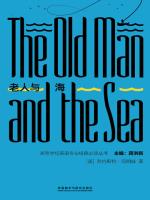Book review
林彦君
The Old Man and the Sea, a classic work by American writer Ernest
Hemingway, tells the story of an old fisherman named Santiago who
catches a huge marlin alone in Cuban waters. Through the old man's
loneliness, perseverance and struggle with nature, the story shows the
indomitable spirit of mankind in the face of difficulties and
challenges. The themes of the book include courage, loneliness, dignity
and the relationship between man and nature. Hemingway portrays the
tenacity and perseverance of Santiago, the old fisherman, through simple
but powerful language. Although he did not bring the marlin back to the
shore in one piece in the end, the courage and perseverance he showed in
fighting the fish is admirable. The Old Man and the Sea is not only a
moving adventure story, but also a philosophical work that explores the
meaning and value of life through Santiago's experiences. The book won
the 1953 Pulitzer Prize and helped Hemingway win the 1954 Nobel Prize
for Literature. Human nature is tough, and human beings themselves have
their own limits, but it is because of people like the old fisherman who
challenge the limits time and time again and go beyond them that this
limit expands again and again, and again and again puts greater
challenges in front of human beings. In this sense, heroes like the old
fisherman Santiago are worthy of our eternal respect, whether they
succeeded or failed in challenging the limits. "A ship crosses the
end of the world and sails to the unknown sea, with a flag hanging on
the bow that is still colourful despite the erosion of the weather, and
on the flag, dancing with a cloud of dragons in general, the four words
shine brightly - beyond the limit!" This is how author Ernest
Hemingway commented on his work The Old Man and the Sea.



 京公网安备 11010802032529号
京公网安备 11010802032529号